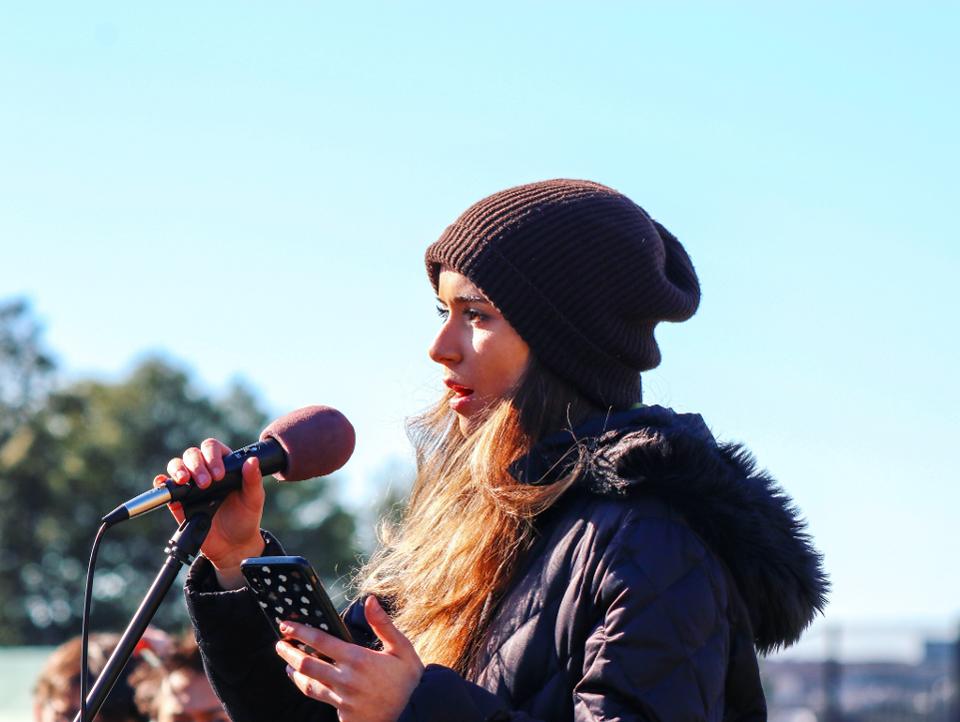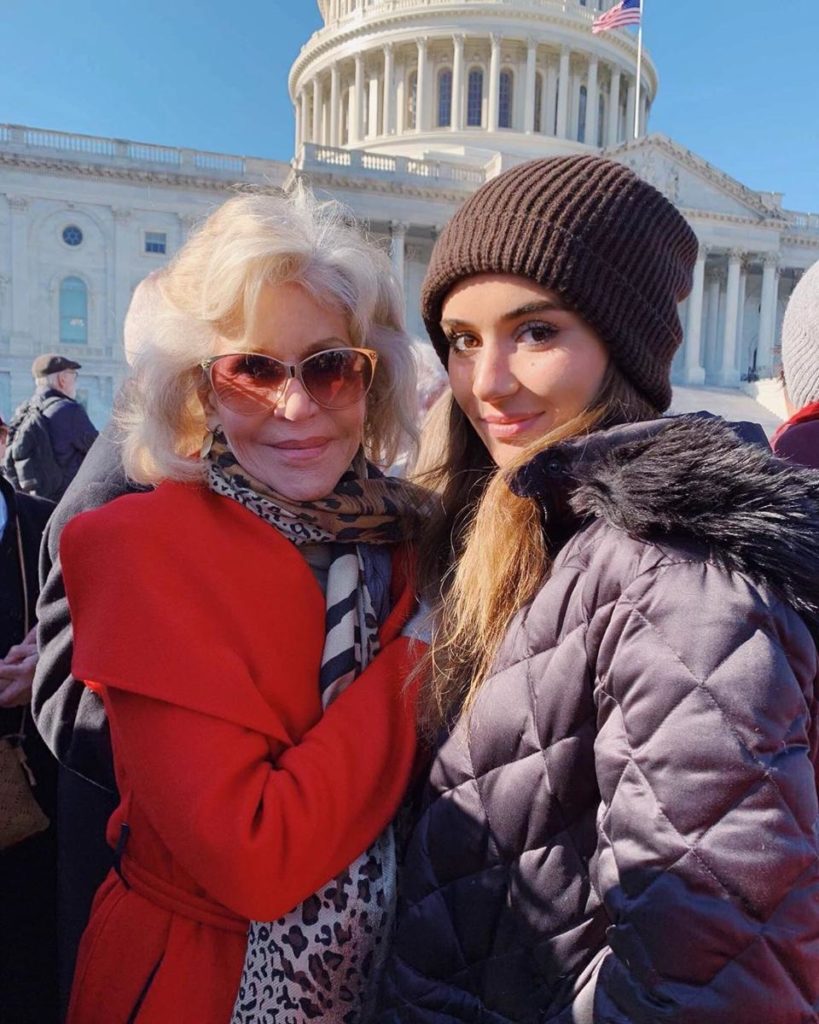
Sophia Kianni is 18 years old and has already accomplished quite a lot while being cooped up at home to help fight the spread of coronavirus. The Mclean, Virginia, high school senior and activist has started a nonprofit called Climate Cardinals to translate climate and environmental information into different languages. She’s still working to get a website up and running as of this writing, but has already received international attention and has more than 100 volunteers participating in the effort.
Kianni, besides being a senior at Thomas Jefferson High School for Science and Technology, is also a national strategist for Fridays for Future (the Greta Thunberg group), an international spokesperson for Extinction Rebellion and a national partnerships coordinator for This is Zero Hour.
As she explained to The Washington Post, her inspiration for Climate Cardinals came from years spent translating articles about global warming from English into Farsi for her relatives in Iran, where the news media barely covers climate change.
“In the beginning my relatives in Iran were a bit skeptical and didn’t understand what I was talking about,” Kianna says. “But over time they saw how passionate I was about the cause and they could see that I was genuinely scared for my future because of the effects of climate change.”
Spreading the Message

Kianni with actress and activist Jane Fonda.
Kianni says her grandmother, aunts and uncles have since come around and “started to understand what an enormous issue this is and how science supported what I was talking about. Slowly but surely, my relatives have now changed their habits, reducing their use of cars, shopping more sustainably and trying to educate those around them.”
Her Climate Cardinals nonprofit aims to spread the message further than the family and already has partnerships with a Persian radio station that has 10 million followers (more about that later).
Kianni also has access to a network of more than 18,000 people to translate climate and environmental information via a connection with the International Student Environmental Coalition, Climate Cardinals’ fiscal sponsor as a 501(c)(3).
The coalition connection means students who participate in the translations will earn community service hours for their work, which are accepted by institutions like the National Honor Society. “They will be able to publish and share their translations online so that other people can actually benefit from their work,” she added.
A Lack of Accessibility
Kianni says she came up with the idea for Climate Cardinals about a year ago when she first began to reach out to other youth climate activists and organizations to get involved with organizing climate strikes.
“I noticed that there was a lack of accessibility in the climate movement to those who didn’t speak English, as most environmental nonprofits I followed on Instagram only posted graphics that were written in English,” she says.
“Additionally, the toolkits, research and informational content that I found online were also almost exclusively available in English or otherwise only translated into Chinese and Spanish. Since then, I have connected with different activists and organizations who shared my concerns and I’ve been working with them to try and figure out how we could remedy this problem.”
She chose the name Climate Cardinals “because I felt as though that evoked the image of a cardinal flying and providing people with climate information all around the globe, which is our goal.” The cardinal also happens to be the Virginia state bird.
Her plans for the immediate future are to get the website up and running and reach out to school language departments to partner with them and work with their students on translations.
“Once the website is up, we will post student translations into folders organized by language so that people can easily go on our website and obtain climate and environmental information in the language of their choice,” Kianni says.
Volunteers also are writing template emails so students can send translated climate information to friends and family and teach them about the climate crisis (the same way Kianni taught hers).

Sophia Kianni
Origins of Environmental Advocacy
Kianni says she wants to make information available “about what climate change is, how climate change works, why climate change is so damaging, why it’s so important that we act on climate change now, how people can play their part in reducing their carbon footprint and different solutions to climate change.”
Her interest in environmental advocacy began in middle school “when I noticed I couldn’t see the stars at night in Iran.
“Every night, I would look up to the night sky with my parents and look for constellations. But on that fateful trip, I was shocked to see pollution had obscured the stars, making them dim and lackluster. The Middle East is currently facing a climate crisis; severe droughts in the region may eventually lead to a war over water.
“Temperatures in the Middle East are also rising more than twice the global average. However, when I spoke to my relatives about these concerns, they informed me that they had never heard about global warming or climate change.”
Beyond translating from Farsi into English, the activist says Climate Cardinals already has volunteers in almost 30 countries, from Albania to Yemen.
“Every single person I’ve talked to in the climate movement has been super supportive about my idea and acknowledged that I am tackling a huge problem in our community.”
She says Climate Cardinals plans to reach out to connect with other groups that do similar work, such as Translators Without Borders, a nonprofit that offers language and translation support for humanitarian and development agencies and other nonprofits around the globe. There’s also TED Translators, who subtitle TED Talks.
She connected with the Persian radio station, Radio Javan, over Instagram.
“One of their co-founders reached out to me over Instagram and we started talking about the work I’m doing and he said that he would love to share my translations with their audience,” Kianni says.
“So we will be creating graphics with climate information translated into Farsi on them for their Instagram as well as translating long climate documents into Farsi so that Iranians can read in depth research about the climate crisis.
“It’s really a full circle moment because I’m going from sharing my translations with 10 of my family members to their 10 million Iranian followers on Instagram.”
Article Credit: forbes
